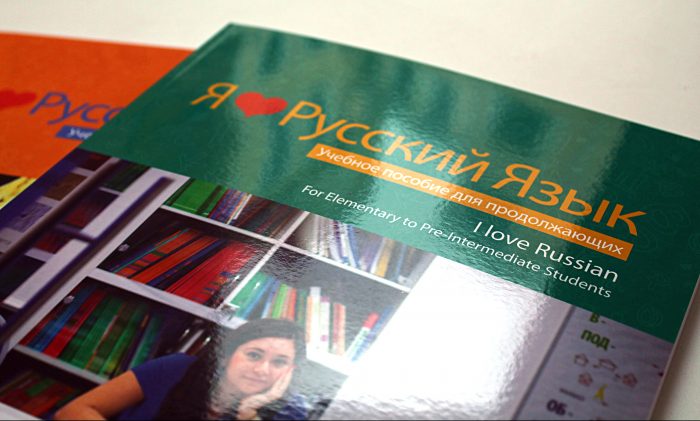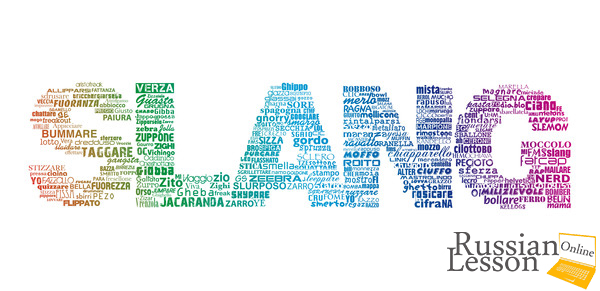What’s great about language learning is that it gives us a legitimate excuse to watch video media. What are you doing spending hours a week watching videos on your computer? Nothing, Mom, just learning Russian! Queue Russian YouTube!
So you’re on YouTube, with your Cyrillic keyboard ready to fire, but what to type into the search bar? Fortunately or unfortunately, the Russian vlogosphere is crafted by a small, but culturally powerful, circle of bloggers who all seem to know each other. Keep reading and I’ll give you a quick overview of some shows to know.
Originally broadcast in Ukraine and also shown in Belarus, Russia, Kazakhstan, Poland, and Estonia, Oрёл и решка is the most popular travel show in Russian language. Two travelers set off to a new city. One of them will live for the weekend with a $100 budget, the other with a luxury, ‘gold’ bank card. At the airport, the hosts flip a coin. If the host who flips the coin gets the орёл (eagle), s/he gets the gold bank card. Conversely, the решка side, often with a head depicted on it, gets you the tight budget. With 19 seasons and almost 400 episodes, it’s fun to find the cities you’ve been to, or are interested in, and see how the hosts spend their time there. Plus Nastya Ivleeva, one of the current hosts, is a superstar in Russian pop culture in her own right.
This one’s a show for history lovers. With videos usually under ten minutes, Redroom shows take a couple different formats: История глупости (history of idiocy), телега (cartful of history), египтологи скрывают (conspiracy theories), and лимб (stories about dead people, a.k.a. history).
Having grown up in Western Kazakhstan and studied abroad in the US, Anuar Tlegenov became quite popular in Russia with his show ANOIR, which analyzes, not just reviews, Russian and American films (usually). Episodes, which normally run for about twenty minutes, often compare films and analyze their writing, cultural/political context, and overall mise-en-scene. In his episode Рэмбо и Брат: глубже чем вы думаете (Rambo and Brother: Deeper than You Think) the two classic thrillers come into dialogue in elucidating and unforeseen ways.
Lately, Tlegenov teamed up with fellow YouTuber and film critic Evgeny Bazhenov, better known as BadComedian. Whereas ANOIR is more educational and deeper, BadComedian is satirical and harshly critical, usually focusing on Russian films. Bazhenov and Tlegenov teamed up to create [BadTrip] a travel show where the two hosts visit the filming locations of famous movies, aired on the BadComedian channel. The show is light watching, with corny sub-plots, and shoutouts to famous movie moments.
With over three and a half million subscribers, вДудь is Russia’s most popular contemporary interview show. The host, Yuryi Dudzh, does not shy away from asking his guests rather forward, controversial, and personal questions. His guests include famous musicians, politicians, journalists, actors, and film directors, such as Vladimir Posner, Basta, Alexei Navalny, Mikhail Khodorkovsky, Vladimir Zhirinovsky, Noize MC, Aleksei Balabanov, Kirill Serebrennikov, and Aleksey Serebryakov, among many others.
Dudzh, who has worked for years as a sports journalist, has been criticized for being a ‘fake’ journalist, for the plethora of uncensored cursing on his show, and for choosing not to invite women guests, with the exception of Ksenia Sobchak and Nastya Ivleeva (remember her from Орёл и решка?). Without ignoring these criticisms, the show remains, undeniably, culturally relevant. But be careful: your Russian teacher won’t like it if you start speaking like Yuryi Dudzh (or Basta, for that matter).
In Всё как у зверей, science journalist and host Evgeniya Timonova explains some of the biological reasons for human behavior. Often times, the show attempts to answer specific questions, such as “Why do we love?” “Why are we scared of holes and hypnotized by pimples?” and “Where does love come from?”
Read also: 9 Soviet Cartoons You Should Watch

Students will be happy to learn that the Russian Government has today announced plans to make Russian language easier in an effort to simplify greater international engagement. …

In a previous post, we revealed that Russians don't really say “na zdarovje” when they toast. While the phrase has been popularised in English language media – and a lot of Russians will nod politely and clink glasses with you if you use it – it’s not something a native speaker would ever…

Improve your Russian while working as an expat? Mission possible! …

What could be a better way for Russian immersion than reading, especially when you read the books that you find interesting and that can give you a better idea of the culture of Russia? Co-founder of Liden & Denz, Walter Denz shares his experience on how reading Russian literature can improve your…

Learning a language is hard. Keeping it when you don't have classes is even harder. So this article is not about how to learn Russian, but how to maintain your Russian. …

Learning the Russian language can be a long, hard slog. Days, weeks, months spent poring over textbooks, attempting to understand the cases, crying over aspects, endeavouring to pronounce ы and щ. …

Many language learners desire to communicate well with native speakers of the language or those who speak it. I have always dreamt of talking more fluently and texting through social media with my Russian friends better. It is no exaggeration to say that good communication skill gives you an…

If you are already able to speak Russian, then congratulations! You are on a good way. But even if you are, let’s say, on level B2, you have probably been in situations with Russians, especially younger people, where you did not understand everything they said — either because they were speaking…